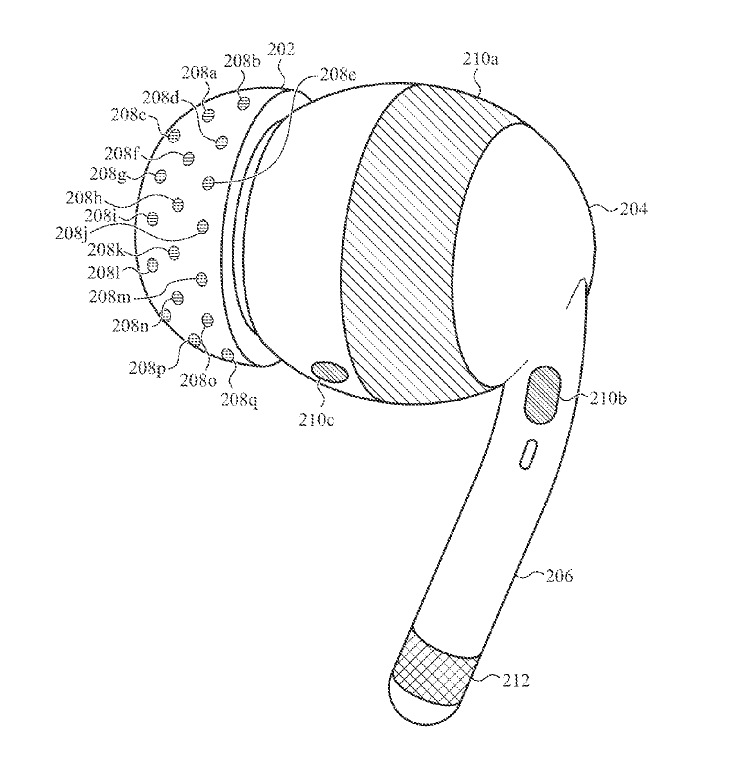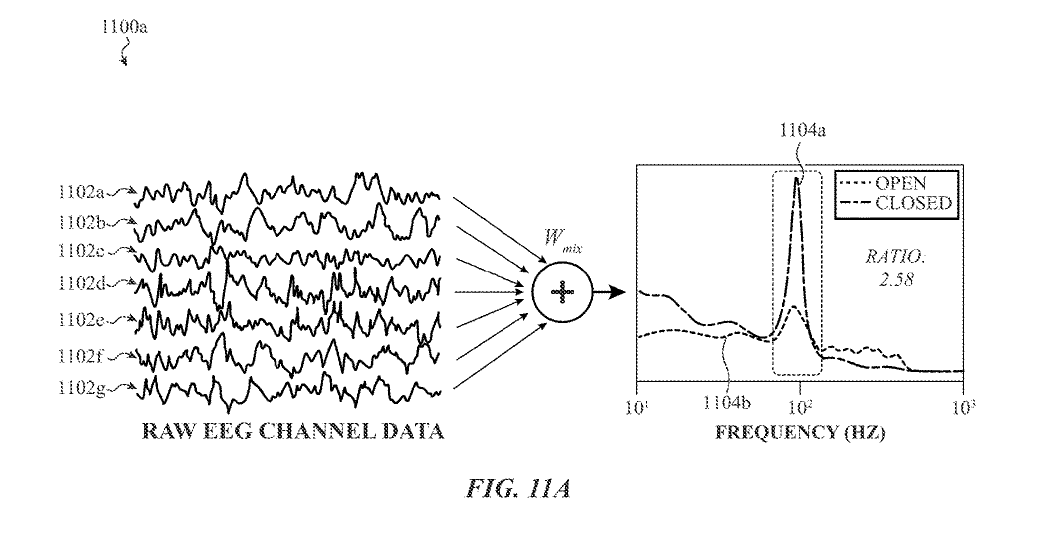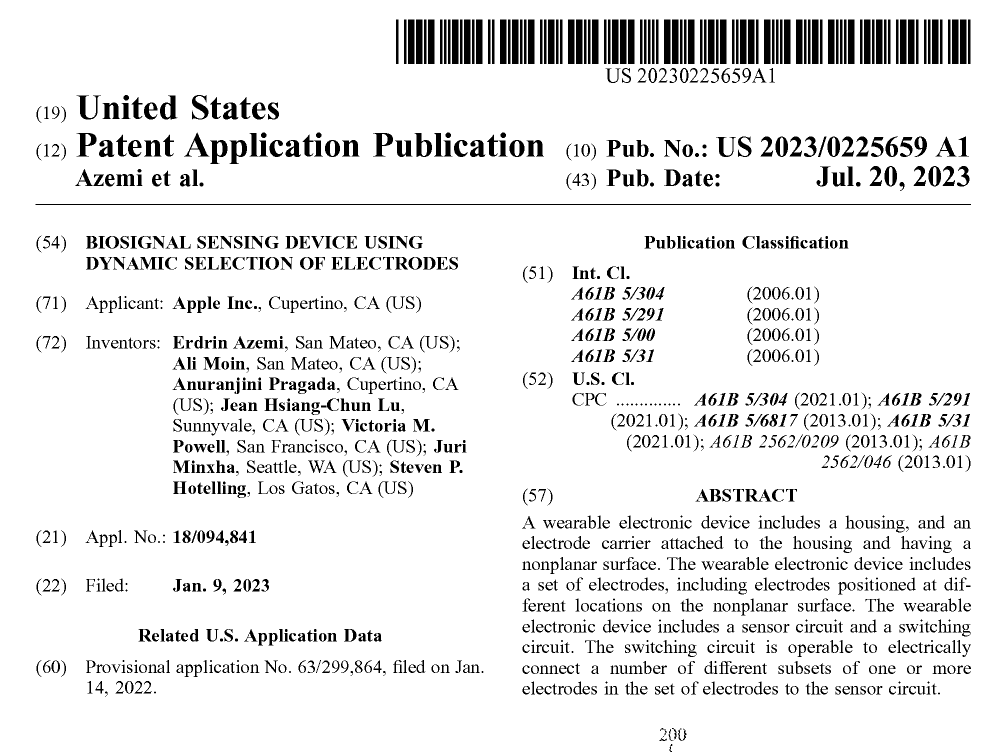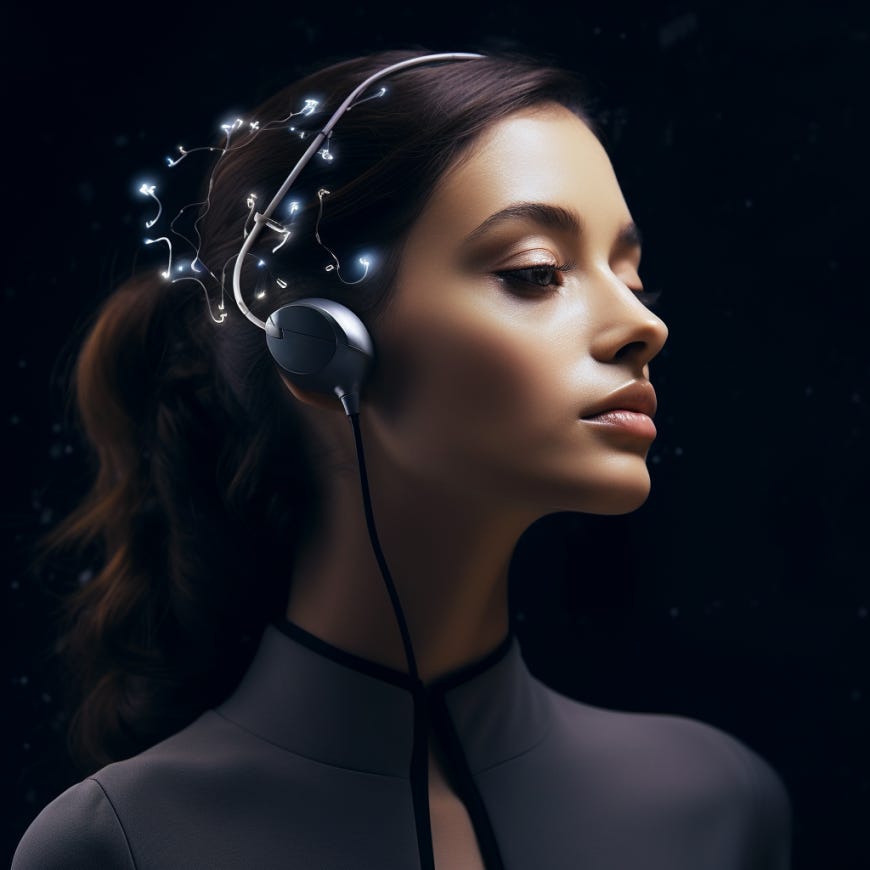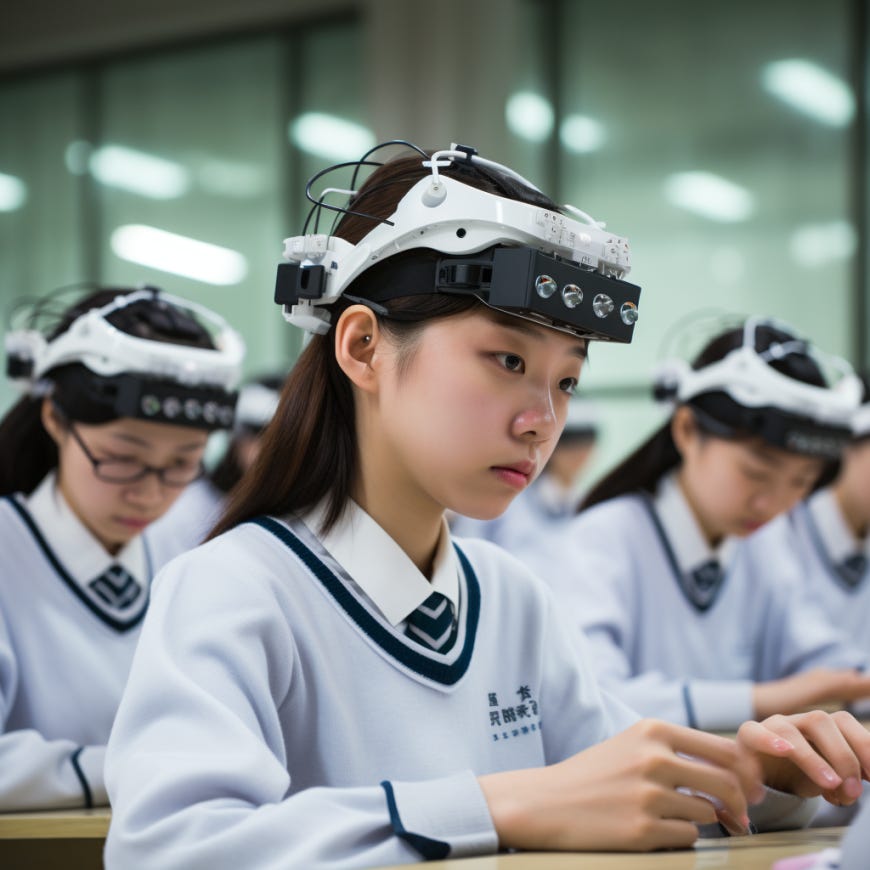Apple will soon be able to read brainwaves. A Dystopian Present or Business Opportunity?
Apple filed a parent for using EEG sensors on their AirPods. Do all our brainwaves belong to Apple? Or is this an opportunity for developers to build something that can truly enhance our daily lives?
Apple recently had one of their patent applications published, which from the looks of things aims to use EEG technology to read signals from your brain whilst wearing them. Here’s the main diagram that shows a multitude of sensors on something that looks like an AirPod:
And here is a patent diagram from the same application which confirms it is likely using EEG to achieve something:
The full patent application can be seen and discussed at WikiPatents.org here: US Patent Application 20230225659. Biosignal Sensing Device Using Dynamic Selection Of Electrodes
The patent is titled “Biosignal Sensing Device Using Dynamic Selection Of Electrodes” and in layman’s terms could easily have been titled as “A device that picks the best sensors, on the fly, to read body signals.” (Note, that this is a published patent application and has not been granted yet). The important part, as is of any patent, is the claims. Claim 1 is that this patent is for “1. A wearable electronic device, comprising: a housing; an electrode carrier attached to the housing and having a nonplanar surface; a set of electrodes including electrodes positioned at different locations on the nonplanar surface; a sensor circuit; and a switching circuit operable to electrically connect a number of different subsets of one or more electrodes in the set of electrodes to the sensor circuit” which in non-patent-agent speak translates to: “A wearable gadget with a part that carries sensors”. Sensors of which will measure biosignals (as explained in the 19 other patent claims). So we naturally start to think that this device will be used to scan someone’s brain signals as they use the AirPods to listen to music, watch a movie, or take part in a conference meeting.
I have seen this technology used across a few industries. One of which was educational technology that students in China were piloting, to mixed opinions, a device that could indicate to a teacher whether attention was fully on the lesson. Which, thankfully, has been rejected by parents now. I generated the below image in Midjourney but I think you can imagine just how this could look and how some educators might even ponder this being a good idea in the first place.
Another, much much cooler, application of this was in the form of a Star Wars force trainer. A brain-sensing hologram electronic game that allows kids to use the force to move an inanimate object.
What is EEG anyway?
EEG stands for Electroencephalogram. It's a test that doctors use to look at the electrical activity in your brain, kind of like how a video game console works.
Imagine your brain as a super powerful video game console. Instead of buttons and joysticks, it uses electrical signals to control everything you do, like moving, thinking, and even dreaming. So an EEG basically lets doctors see these electrical signals and compare them to other healthy/non-healthy brains in order to determine normal or abnormal patterns. Traditionally, doctors put a bunch of small, sticky patches (electrodes) on a patient’s head for maximum accuracy. These patches pick up the electrical signals from your brain and send them to the computer, which turns them into wavy lines that the doctors can look at. A typical application of EEG is used to look into neural problems like seizures or sleep issues.
Dystopian or Major Opportunity?
The patent application has seen mixed responses on social media so far. So is this inherently a dystopian thing where Apple will be listening and collecting data on your brainwaves, possibly. But they’re probably going to do it anyway. So rather than sit back and get upset about this, why don’t we as builders think of t
Here’s at least six applications that I think this technology could be useful for, for the good of mankind:
Monitoring elderly parents. (If they’re not hostile to the idea of course).
Improving your sales pitch. Imagine, being able to detect people's mood/tone changes during phone calls? Could you build an app to help keep you cool on sales calls?
Monitoring and determining activities which you should avoid in order to maintain healthy stress levels. Or at least telling your body in advance if you are about to get angry with something.
Performance optimization in sports and e-sports.
Baby/toddler (and pet?) communication. It’s an age old desire to want to know what our baby or toddler is exactly asking for. Could sensors help with this?
Getting better sleep. Something we all want. Imagine being able to determine the perfect playlist that will help us to get the best sleep imaginable?
That is just six from the top of my head. Of course we can probably all make a guess that Apple will use it for (yawn) neuromarketing to measure consumers' neural responses to advertisements, products, or experiences in order to optimize campaigns on user preferences.
But we can do so much more with this technology.
What are your thoughts? Let’s continue the discussion on “X” here: https://twitter.com/growth_hc/status/1685216509029957632

